Rachel Coyne
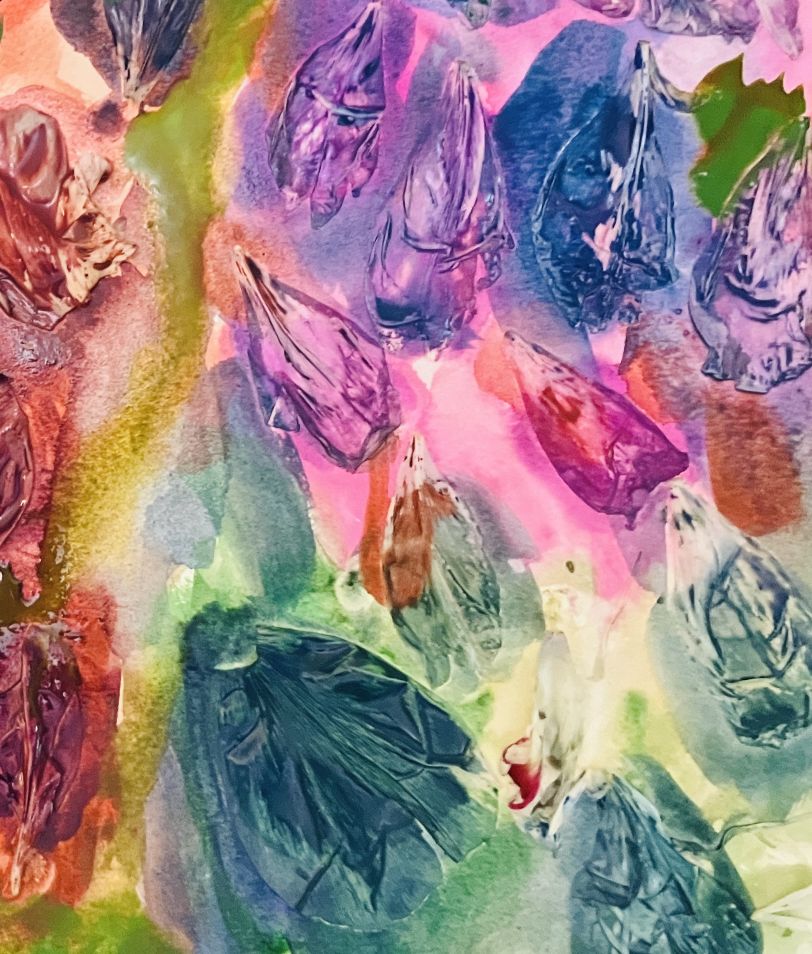
Anytime, Anywhere
Inside a single diamond of rain
heaven might rest.
You can be doing anything
sliding towels into a cabinet
Turning the page on
an afternoon nap
and tell in your bones
the exact second
When rain, any rain
starts, when it stops.
Aren’t deer, raccoons
and trees like that also.
Absolutely
Married to air.
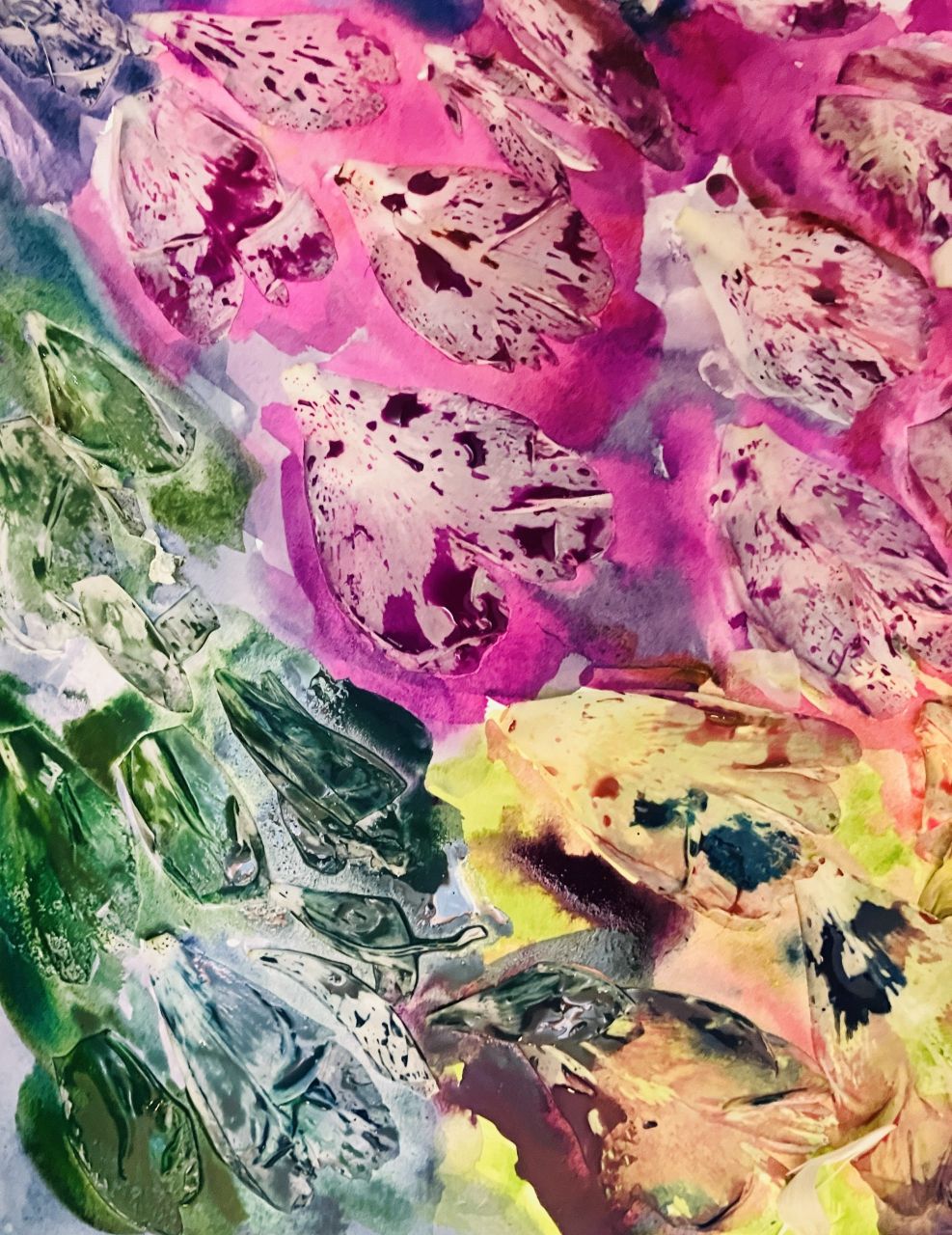
Spring Gift
I think of her now, how she loved gardens,
and the genuine grace of her soul
That word she used for the slate of human construction,
calling here and there to smallish birds
Black dahlias, illustrative envelopes of sound,
things no listening can hear
The Cana Lilly, the big flowers failed states
in the small corners we call we weeds,
Dove blue gods that let every sparrow
fall with parasols, from the opulence of their death,
Marigolds, young and disenfranchised, destitute,
payless wanderlusts, half the age of the sun,
Secret credulities of hybrids, upstart redacted notions,
of what a flower might say
Were it to salute the queen bee,
as its rump pollinates the whole,
On the day we have risen into missionary position,
forgetting the frugalities of war,
Speechless as a seed, rounded vowels bootstrapped
to the tigers, crouched in the undergreen,
Strong colours for the wireless calling,
the shyness haunting the internecine affair,
And in the ravine, singer of the olive tree,
orchards illuminated, a dais of waifish sea
Crawling the waves stoked by dawn,
limericks of dancing leprechauns and an unctuous breeze,
Couched behind words unspoken, in the back rooms
of ivory towers, unloved and unheard.
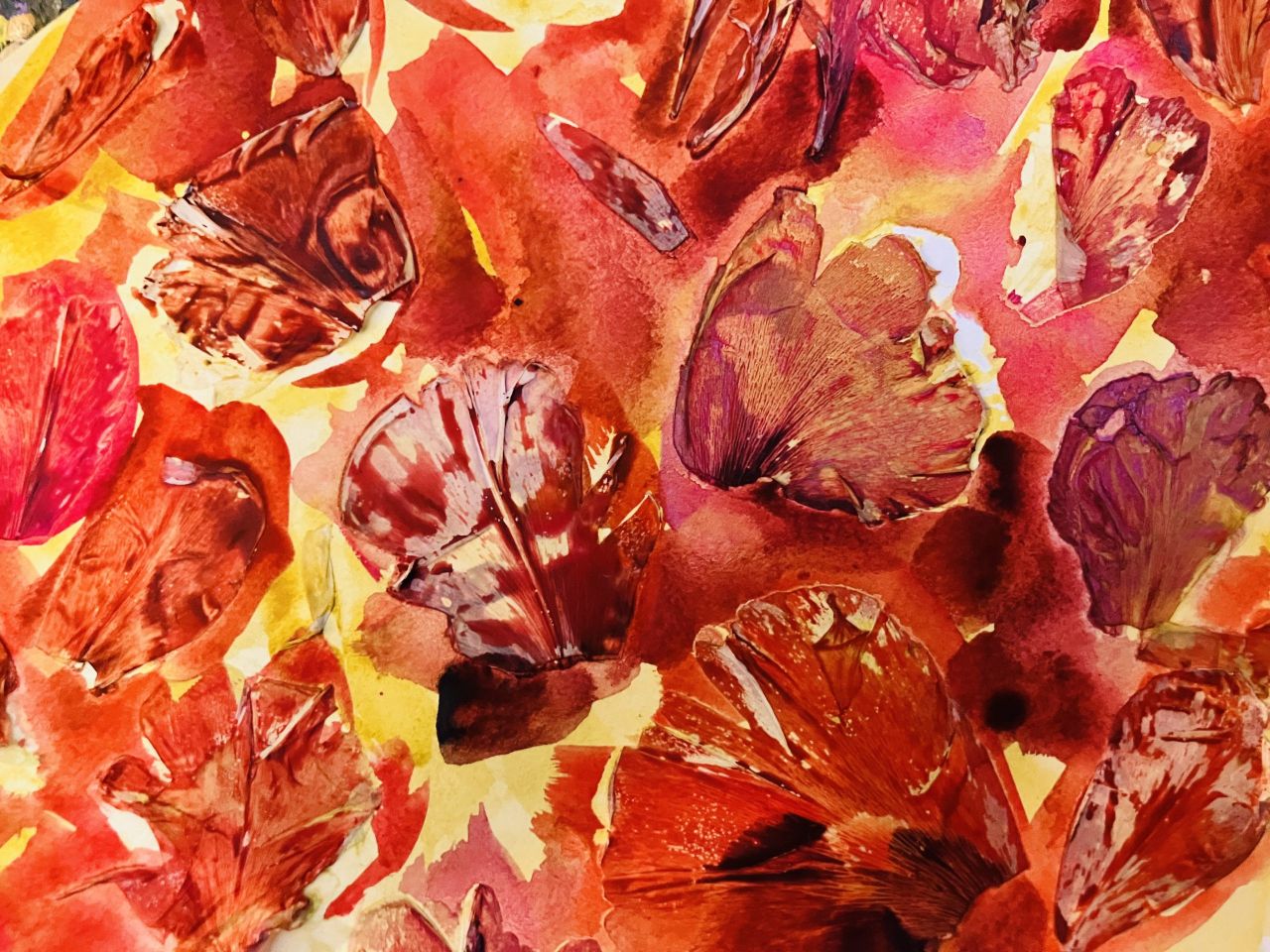
Half Truths
I didn’t know I spent most of my youth telling half
Truths. I was born under your Floridian sun
Had my first crush witnessed by North Carolina’s Mountains
Held my first library card under the guidance of Tennessee snow
And yet, I’ve always told you I was Mexican
But wasn’t that the answer you wanted?
No. It was the answer you gave me.
But your answer never changed when you heard
You’re not a true Mexican until you can hold your spice
And speak Spanish. You knew I cried, biting jalapenos
And you knew I didn’t speak Spanish, but never smiled
When others said I had an American accent.
Still, you told me I couldn’t be white without an ‘h’ in my name
And I know my color can’t let you label me as passing, like my father
But there was a time when he wasn’t passing. A time when you let
A mother’s accent anoint him as half white and good enough to be a janitor.
And you taught his father the song We Don’t Speak Spanish Here
So how can I learn the lyrics of Latin language when you limit the chorus?
And I still love the textured taste of cut steak and mashed potatoes
You can still hear my hum of ordering hamburgers with fries
I’ve seen you loosen your lips about sun-kissed skin
I’ve heard you hold your tongue over untaught syllables
But you keep quiet when your claimed child peeks
Eyes wandering side to side to the clicking of clocks
Are you legal?
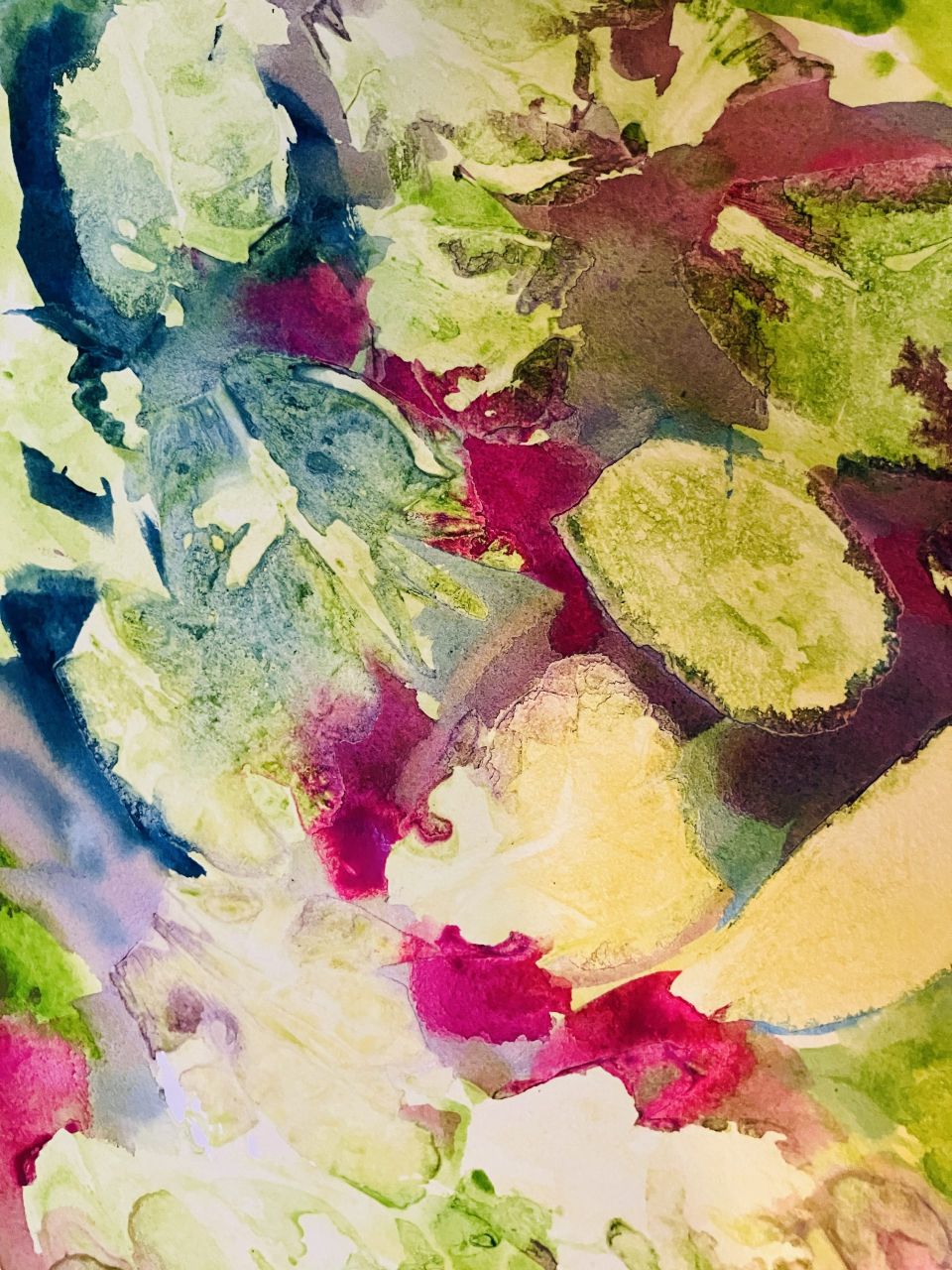
John Lennon at the Old Marquette Inn
Last night he was talking to Federico Fellini
in the bar on chili night, who told him “I’m not afraid
anymore of telling the truth.” John Lennon was celebrating
his 84th birthday, as if the years no longer mattered.
He wanted his whiskey. Like Jim Harrison, I said,
who wasn’t actually dead like everyone else.
His poems scared all the birds from his head.
“Fear makes for good servants.”
His body spun on his stool and the Liverpool boy
talked about Lake Superior singing outside.
Angry waves exploded in his chords
on a Gibson he had left out all night in my car.
It had an ugly sound that suited his darker edge.
His wire-rims were replaced by designer shades now,
all his shirts made in Rome. He cursed when his tie
dove into a chili bowl and stained his Piero Gherardi suit.
When Fellini had told Lennon about his wife in bed
his eyes opened wide, ready for outer space.
John slept alone with the television on.
Some nights he asked me to join him. We read
Harrison’s poetry of birds and rivulets
flowing between a woman’s legs
in her walk through Mulligan Creek.
John Lennon suddenly splashed on some trousers
and explained he was going to knock on Fellini’s door.
The Beatle standing alone on the fourth floor
would catch my nineteen-year-old girl walking to the bathroom.
She would smile at him just when we happened to see
Jim Harrison with his manual typewriter
telling us he was going to write a novel on the hotel roof.
The ingredients were the stars, he told Lennon,
as if he wanted one more song from him
to sing of a woman’s body bathing in a stream.
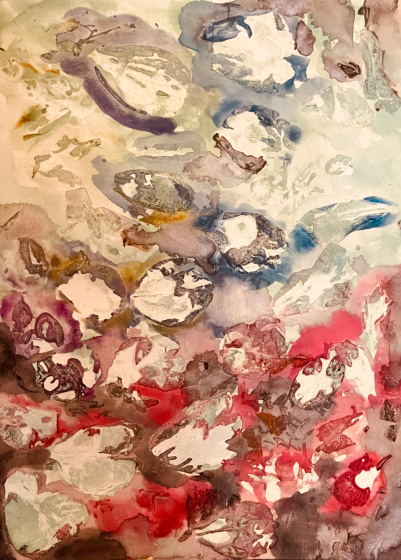
Red Tag
The old rancher’s chopped, buttery voice hummed as he told me my task for the day. “Tag the youngins’. Green tag’s good for breeding, yellow tag’s alright, and red for meat.” It was a simple task, yet it still made my heart ache.
There was eight calves in all. Three boys, five girls. He’d told me all the tricks to tell which one’s would be good but I can’t pick. I’m a rancher. Trying to be at least. I’ve shot deer and ran a knife between their skin and muscle. I’ve gutted pigs, watching their entrails hit the ground like a clumsy child. I know violence and I know death. Meat cows make hamburgers and I can’t lie, I love me a good steak. I ain’t just a ranchin’ man; I’m a smart man so I know this I swear.
That still don’t stop my hands from trembling for each calf I walk up on. One with grayish white fur and big black eyes won’t stop staring right at me no matter where I go. Even when I’m with the other calves, his eyes track me like he knows. He knows he has his father’s strong muscle and lily white fur. He knows he’s safe, but that his sister gets sores easy and screams all day and all night. He watches me place a red tag on her ear, and for an animal that can’t see much color or feel much emotion, I see his tiny heart break.
When I finally get to him he lets out a low moo of greeting as I reach him in the silver cage. “Yeah, yeah I know. I hate this too.” I look him over feeling the muscle in his legs and remembering how he’s the only calf to never get sick with nothing. I reach for a green tag but even in his knowing eyes, this don’t please him. “Chin up you lil’ thing you’re gonna live a long life of green pastures and lots and lots of babies.”
His moo echoes in the barn as I clip his ear and the more I shush him the more it ticks him off. When I’m done, I rub the top of his head which only ticks him off more. He tears his head back chomping down on my finger in the process. I swing back my hand into a fist on instinct. An instinct I never have and never will use. My hands fall to my side, my fingers shaking against my jeans.
When I was little my momma always said I couldn’t hurt a fly. She’d laugh when I said I wanted to own a ranch. “Now Riley you know ranchers kill things by trade.”
I’d always respond the same way, my boyish southern drawl sounding like chicken scratch personified into speech. “I know momma, but you gotta help it live first. That’s gon’ be my favorite part. Watching it grow up cause of me.”
I stare at him, the green tag bobbing up and down as he shudders his ear trying to wave it off and shake my head. “You’re gonna live a long ass life and when you’re old and stubborn, you’re gonna drop dead.” I look over to the sister of his who was born on the same day from the same father. She has speckles of chestnut running up her legs and haunches that are covered in sores. Her nose is runny from a cold she couldn’t shake from birth, her eyes wet from the constant pain of being alive. “I don’t know what he got planned for you two, but I know if he’s a god who wants any of my prayers you’ll see that little girl running like the day she’s born when he decided to take you from your body.”
I reach out to pat his head again, the malicious look on his baby face gone. I never met a cow who could speak a lick of English, but something in his body knows what I’m saying. He can taste a long easy life like the ball of hay in his lips were replaced with sugar cubes and dew drops.
As I go to leave, I stop as I see the old man hunched over in the doorway to the barn. “You did as I said?” He asked his body a curled over shadow like a comma blocking out the evening sun.
“Yes sir. Eight calves were tagged three green, three yellow, two red.”
He nods slowly, his short frame coming closer into view. His plaid button up has holes in the bottom that never have and never will be mended. He’s a white man with dark leathery skin that has more creases than a crumpled piece of paper. As he gets closer, his soil colored eyes look through thick eyebrows up at me. “Good. They’ll all be grown enough in about three months and the truck’ll be here to grab them then.”
I try to be neutral. Nod my head and not give a damn. I really, really try. I don’t know if it was the widening of my eyes, the crease of my eyebrows, or the tiny downward slight of my lips. Something small and useless no one but that old man would notice.
“You named them didn’t you?”
“What!”
“Don’t play stupid; you heard me, boy.” He gets closer to me, his eyes staring through mine straight to my whirring brain. “Did you name them?”
I look down, my chest full with heavy guilt. “Yes.”
“What’d you name the two headed to the meat truck?”
I walk backwards so he can get a visual. I point to the boy who I chose for the meat truck, his fur pitch black with huge bug eyes. “I named him Soldier cause he looks like he just got back from Vietnam. How big his eyes are and all.” I keep walking until I get to the little girl, her ear trying to twitch off the tag like she knows what it means. “And I named her Lucky cause I think she’s anything but.”
I look to the older farmer expecting him to smack me upside the head and call me an idiot. Instead when I look to him, his eyes have this begrudging softness I’ve never seen in him. “You know the difference between my job and some company that sticks a thousand cows in a warehouse?”
I shake my head and he leans his old tired body on the gate keeping the cows in, it letting out an ancient creak as he does. “They know what care feels like. I had it when I first got this ranch from my father. I was a little older than you but I was just like you. I’d give em’ names. I’d pat their head and talk to them about my day. I had that and I’ve lost it. It ain’t a bad thing boy, but it’s a tiring thing.”
“What are you saying exactly?”
“I’m saying hold onto it as long as you can. The longer you have that, the more human you’ll be when your maker calls you home.”
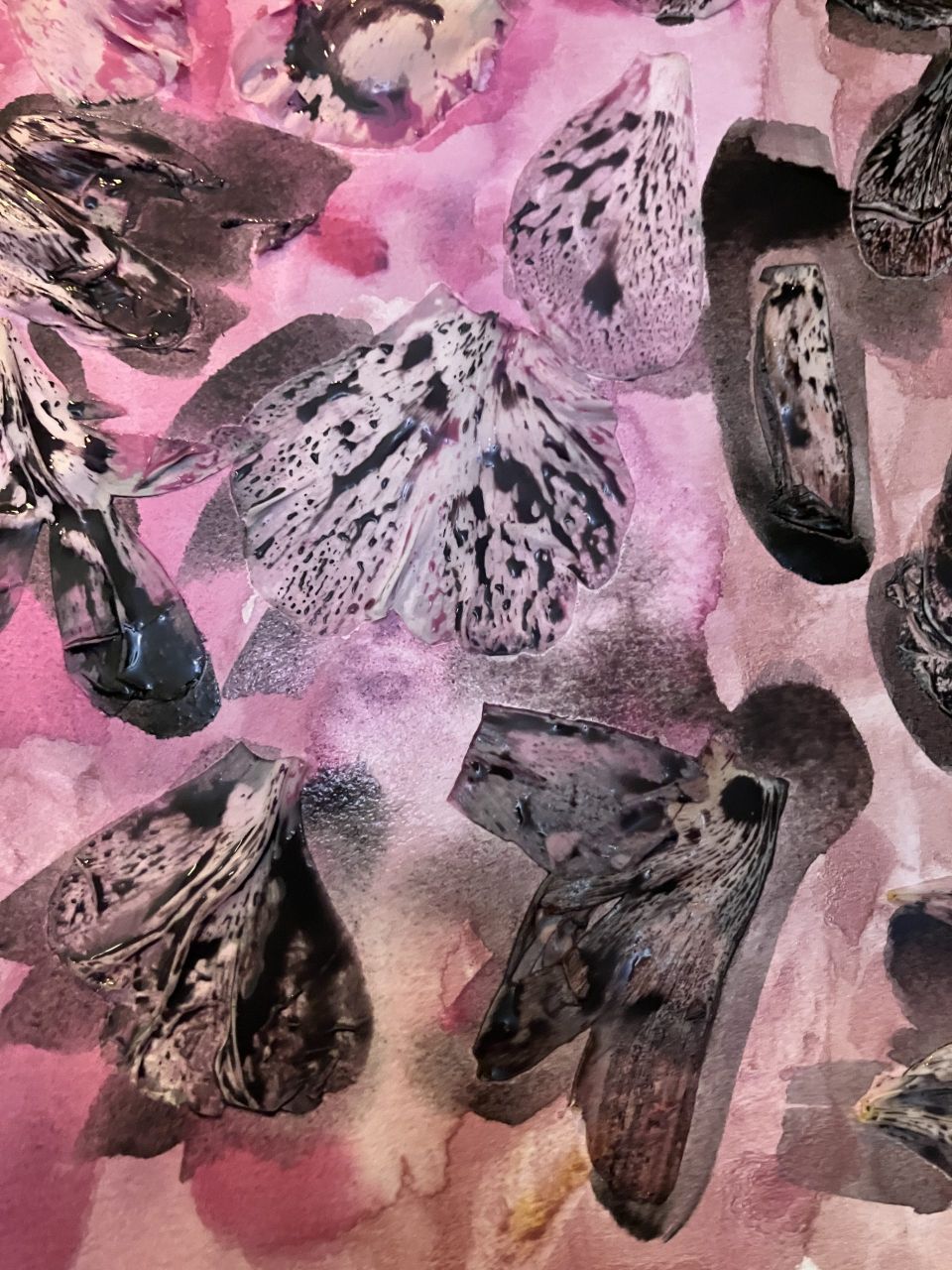
The Clearing
Leo pushed through the tangled vines, creepers, and sawgrass toward the tiny clearing
deep inside the willow grove. The pungent smell of things rotting filled the air. A little creek that
spread out through the trees kept the ground sodden. Breathing hard, Leo followed Weiner, his
friend’s face split in a jester’s grin.
“Come on, hurry up, I gotta pee,” Weiner said.
“Yeah, yeah. Hold your horses, I’m coming.”
Leo and Weiner had spent all Saturday afternoon at The Plunge, Santa Barbara’s
municipal pool, sharing the summer heat and tepid water with a packed crowd of kids. Weiner’s
real name was Oscar, but everybody called him Weiner after the maker of hot dogs. Exhausted
and bleary-eyed from messing around in the highly chlorinated pool, they had crossed Cabrillo
Boulevard and headed home.
“Hey, you wanna go looking for tennis balls?” Weiner had asked.
“Where?”
“In that grove next to the courts.” Weiner pointed. “People knock ’em there and are too
lazy to find ’em.”
“What’re we gonna do with a bunch of tennis balls?”
“Clean ’em off and sell ’em, stupid.”
“Yeah, right. I knew that.”
“Then why’d ya ask?”
“Shut up!”
They now stood apart in the clearing, bathed in sunlight, in the heart of the dark jungle. In
the background the grumble of traffic on Cabrillo sounded like the surf off Leadbetter Point.
Weiner unzipped his jeans and watered the ankle-high crabgrass. Leo felt the back of his
neck go numb with an excitement that a seventh-grade boy shouldn’t feel, surely a mortal sin
that he would need to confess to Fr. Beckett before Sunday mass. How the heck am I gonna do
that? Leo thought. What’ll I say to that old Jesuit, that I thought about . . . about touching
Weiner . . . and more? I don’t even like him that much.
“What are you staring at?” Weiner asked.
Leo grinned. “Nothing much.”
“Screw you. Come on, let’s look for balls.”
The boys combed the clearing but found nothing. After slogging through the muddy
undergrowth, scratching bare arms and destroying shoes and jeans, they came away with only
three dirty tennis balls. Scraping slime from their Keds at the curb, they headed home to San
Andres Street and its Magnolia trees with virgin-white flowers. They didn’t talk much, Leo
pondering what he had seen in the clearing, about the sun shining off Weiner, his hair ablaze,
blue eyes gleaming. He shivered and forced himself to think about something else.
The following day, Leo and his father, mother and older sister drove to church in their
year-old ’58 Studebaker. They always attended 9:15 mass at Our Lady of Sorrows, sat in the
same pew, mumbled the same prayers, and listened to their stomachs growl from fasting before
taking communion.
“I gotta go to confession,” he muttered to his sister, Elsa.
“What nasty little sins have you committed this week?” she whispered.
“None of your business.”
“I hear you thrashing around and moaning in bed at night.”
“Shut up!”
He left the pew and walked to the rear of the church where confessional booths occupied
one wall. A line of kids and adults waited outside the curtained-off compartments, one on either
side of the center one where Fr. Beckett most likely sat. Leo joined them, shifting from foot to
foot. Jerry Vasquez from his class stood at the head of the line. He looked back and grinned. Leo
closed his eyes, memorizing what he would say to the priest.
When it came his turn he pushed through the curtain and knelt, facing the closed partition
window. He could barely hear mutterings from the person confessing their sins on the other side
of the priest and the good father giving absolution. Yes, it was crotchety old Beckett. Finally, the
partition slid open.
“Go ahead,” Fr. Beckett said.
“Bless me Father for I have sinned. It’s been three weeks since my last confession.” Leo
always wondered why they wanted to know that. Was there some time limit for confessing sins?
“Father, I talked back to my parents, I lied to my fifth period teacher, and . . . and I had
impure thoughts about a boy in my class.”
There, he had gotten it all out without stumbling too much. Leo held his breath, hoping
Fr. Beckett wouldn’t have any questions. But alas . . .
“What was the nature of these impure thoughts, my son?”
Holy hell, does this guy want me to draw him a picture? “I . . . I wanted to touch him.”
“I see. Did you act on these impure thoughts?”
“You mean, did I touch him?”
“Yes, my son.”
“No, that would be too weird.”
“Good, good. You must be mindful of any such transgressions, either in thought or deed,
and avoid the occasions of sin.”
“Yes, Father.” Leo tried to remember what an “occasion of sin” was from his catechism
class.
“For your penance say three Our Fathers and three Hail Marys and make a good act of
contrition.”
“Yes, Father. Oh my God I am heartily sorry for having offended Thee, and …”
Leo rattled off the prayer as he had done since he was seven. He rose and pushed through
the curtain, feeling light, a great weight having been lifted, his sins washed away and God’s
grace flowing into his soul once again. But as he made his way back to the pew and his family, a
cold fear tightened his chest. Would he feel that way again about a boy? Was it a one-time thing,
something natural that boys go through? Should he stay away from Weiner? Was his friend, in
fact, an occasion of sin?
Reaching the pew he climbed over his sister, knelt, and focused on saying his penance,
the prayers forcing out other thoughts. But fear firmly implanted itself within him, and that night before sleep, visions of the sun-drenched clearing returned and he struggled to rid them from his
mind.
Leo’s fear of being homosexual faded to an occasional outburst, replaced by good old-
fashioned lust for women. In the years to come, he made many trips to the confessional,
mumbling to some supposedly celibate priest his sins of licentious thoughts, self-abuse, and later
actual sex. But it got harder and harder for Leo to feel “heartily sorry” about any of it.
When he thought about the clearing and Weiner, he inwardly cringed and felt disgusted.
This revulsion morphed into a distrust and resentment of gay people. After all, if he could see the
error of his ways, why couldn’t they? They must be weak, or worse, Godless with no moral
compass.
***
In his early forties, Leo became a partner in an environmental consulting firm. Life had
been good: he’d avoided the Vietnam War and married Louisa, a woman he’d met at UCLA and
loved dearly. They had the requisite three children and with two professional incomes could
afford to live and raise a family in Santa Barbara.
Leo never told Louisa about the clearing or Weiner. His childhood friend had faded into
the past, barely remembered as a face in a crowd of school kids banging lockers shut and
hurrying down hallways. But he did remember something from his Catholic education, a
fragment from an epistle written by St. Paul to the Corinthians, “When I was a child, I used to
speak like a child, think like a child, reason like a child; when I became a man, I did away with childish things.” Leo told himself that the clearing and Weiner were childish things that should
be forgotten or at least repressed. Over time, his efforts failed.
A week or so before Easter, Leo volunteered to help interview people for an engineering
position with the firm. As senior member of a five-person panel, he sat in an airless room, behind
a table in a three-piece suit, and helped question each candidate. The hours dragged. All the
applicants seemed to have studied proper interview etiquette from the same playbook, with no
standouts, until the very end.
As the young man seated himself, Leo opened his folder and stared at his resume. His
name was Oscar and he had grown up in Milwaukee, Wisconsin.
“So tell us why you applied for this job?” the first interviewer asked.
Oscar answered. His voice had a musical lilt, not rushed but thoughtful, and yet firm. Leo
studied the man: dove gray three-piece suit, light rose colored shirt, burgundy print necktie, gold
cufflinks, manicured fingernails, perfectly coiffed blond hair.
“Tell us something about your work history and what abilities you could bring to this
firm?” the second interviewer asked.
Leo didn’t listen to the answer. His mind drifted back to the clearing, to the other Oscar.
He shuddered, trying to shake the image. This man looked nothing like Weiner. Yet he knew this
Oscar was gay. How did he know that? How could he know that? And why would it matter?
It was Leo’s turn to ask a question. “Do you have family here in Santa Barbara?”
“No. My partner and I just moved here.”
“Your partner?”
The other interviewers glared at Leo, knowing that these questions were unscripted and
might get the firm in trouble.
“Yes. My partner was just hired by the City.”
“Really. What department?”
More stern looks from the other panel members.
“Public Works.”
“Well, having some connection to the City could be an asset to our firm,” Leo said. “How
do you like Santa Barbara?”
Oscar relaxed in his chair. “I love this community, the mountains and the sea, the Spanish
architecture, no snow.” He chuckled. “And the people seem friendly and . . . and more
accepting.”
“Different than the last place you lived?”
“Oh God, yes. The AIDs scare really shook that community and anyone that was . . . was
gay was looked on as some kind of leper, like in Biblical times.”
“But even Jesus befriended the lepers,” Leo said.
“Yes, he did. But I’m not certain mainstream America is ready yet. Maybe someday.”
“Yes, maybe.”
Before Leo could ask anything else, the other members jumped in with the normal and
safe questions. Afterward, they discussed the eight candidates and argued about who should get
the job. Leo pushed hard to hire Oscar and after an hour, he’d won over the two holdouts. Oscar
became the panel’s unanimous choice.
Leo kept staring at the new-hire’s resume, wondering how a morally questionable person
could be so successful, so poised and adroit, so accomplished in his profession. But then, did
Oscar’s gayness matter? Why did it matter to Leo? Was he threatened by it? Did his religious eliefs allow him to judge? And what about “Judge not, least ye be judged”? Judging others
seemed so natural to Leo. But maybe it shouldn’t.
As a partner, Leo seldom made contact with Oscar. But two months after the young man
was hired, they found themselves in the break room drinking excremental coffee.
Leo cleared his throat. “I . . . I wanted to tell you that you were very brave during your
interview – telling us you were gay.”
“I know it was a risky thing to do. But I didn’t want to hide anything. I figured if the
interview panel couldn’t accept me, then maybe I didn’t want to work here.”
“Well, we’re glad you’re here.”
“So am I. But I have to ask, did you hire me because I’m the best person for the job or to
convince yourselves that you accept gays in the workplace?”
Leo grinned. “For me it was both.”
“Thanks for telling me. And by the way, you asked the best questions.”
***
Children moved away and begat grandchildren, fulfilling careers became repetitive work,
bodies deteriorated, life goals simplified, lives slowed and some stopped.
On Sunday, Leo left his car in the parking garage and hobbled to his favorite restaurant
on State Street. Tourists crowded Santa Barbara’s main boulevard, searching for eateries to enjoy
brunch and hide from the hot Santa Ana winds. Leo ducked into a dark and cool café. It had been Louisa’s favorite and ever since his wife’s death he made it a point to eat there on Sundays. He’d
stake out the corner stool at the bar, have a glass of wine then a couple Bloody Marys, watch the
big screen TV and shoot the bull with the other old men and women who showed up on Sundays.
But today was different. With wobbly legs, he leaned on his cane and stared around the
room. A crowd of young people occupied every barstool, with all the tables and booths filled.
Francisco, the bartender, grinned. “Sorry, Leo. Something should open up soon. You
want a glass of wine while you wait? On the house.”
“Thanks, some Chardonnay would be nice.”
Leo tasted the cold golden elixir and scanned the room, looking for familiar faces and
finding none. Two middle-aged men sat at a table against one wall, leaning back in their chairs
and sipping something dark from martini glasses. The taller one caught Leo staring. He smiled
and waved Leo over, pointing at an empty chair.
Leo felt wary about joining them. He was positive that he didn’t know them, and no
stranger had ever offered to share a table before. But his legs were giving out. He shuffled to
their spot. The tall one spoke first.
“You look tired, old man. Would you like to join us?”
“I . . . I would. My pipes are killing me.” Leo gulped his wine, slumped onto the chair
and adjusted his jeans and ratty denim jacket, feeling self-conscious about his scruffy clothes
compared to his tablemates. The two looked like they’d just come from church, wearing their
Sunday best. Leo hadn’t been to church in years.
“My name is Sheldon,” the taller one said.
“And I’m Cooper,” the other chimed in.
“Glad to meet you gentlemen. I’m Leo. Say . . . Sheldon Cooper. Isn’t that the name of a
character on that TV sitcom?”
“Yes, yes, we get that all the time,” Cooper said. “But the guy playing that part is so
flaming. It hurts just to listen to him sometimes.”
“Flaming?” Leo raised an eyebrow.
“You know, super gay. We’re gay but that guy just gets on my nerves. The writers should
have butched him up before he married that woman in the series.”
“Yes, I always thought that was strange,” Leo said.
“You don’t think we’re strange?” Sheldon asked. He had reached across the table and
taken Cooper’s hand.
“No, no. I don’t know you fellas.” He stared at his empty wine glass and sighed. “But . . .
but when I was a boy I was scared that I might be gay.”
“Why?“ Cooper asked.
“There was an incident and it has stuck in my head.”
“Let me guess,” Sheldon said. “You lusted after some boy?”
“Well . . . ”
“Relax, we’ve all been there. But few have done something about it. You didn’t do
anything did you?”
“The priest I was confessing my sins to asked me the same question, seventy years ago.”
Sheldon laughed. “Don’t get me started about priests.”
The silence grew. The duo sipped their drinks, with Leo thinking back to that afternoon
in the clearing with Weiner. Was it just a flash of hormones? But why would it stick in my head
for all these years?
“Will . . . will my questions ever go away?” he murmured.
“Probably not,” Cooper said. “But don’t worry about it. The questions shouldn’t stop you
from drinking life to the lees.”
Leo nodded. The silence grew again. He tilted his wine glass back and frowned when he
found it empty. Sheldon raised an arm and signaled Francisco to bring another round.
Finally, Leo asked, “So . . . so what do you guys do?”
Cooper answered. “We’re fashion designers up from LA. Taking a break. And you?”
“A retired engineer . . . living the good life, you know.”
Cooper smiled. “I would have pegged you as some old rancher, in town to enjoy the big
city lights.”
“Yes, I kinda dress the part. I wore Armani suits to work for years. Thought I’d try a
different tack.”
“So I take it you don’t have many gay friends,” Cooper said.
“None that I know of. And in the old days it seemed that few wanted to come out. My
family lived next door to a guy for thirty years and we never knew.”
Sheldon grinned. “Yeah, coming out to my parents was the worst. Mother probably knew
all along but Dad just freaked out. We used to do all the manly things together: sports, camping,
playing poker, shooting guns, all that stuff. But over the years he’s learned that we’re not Satan
out to corrupt anyone’s soul.”
“I think the old priest that I confessed to would disagree with you.”
“They should talk. Let he who has not sinned . . . ” Cooper said and the pair of them
laughed.
From across the room Francisco motioned to Leo that a space had opened up at the bar.
Leo grinned and shook his head. He thought about the clearing, without the coldness that usually
accompanied such reflections. The clearing was clearing up, and for the first time he felt he
might be able to live with those nagging unanswered questions.